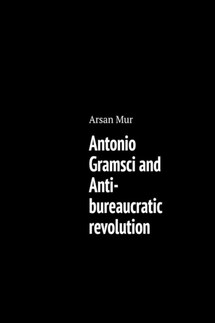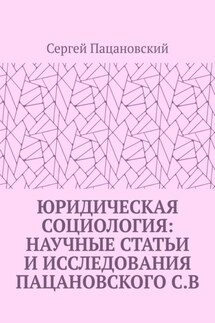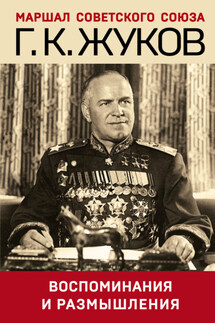Antonio Gramsci and Anti-bureaucratic revolution - страница 5
A lot of research and criticism led to the fact that, regardless of the vulnerability of many of the formulations and provisions that came in the XX century, and were developed in its first third, in the subsequent XX century introduced little new. Most attempts to create something new lead to the same situation. The situation that has developed since the 80s. XX century can be classified as a methodological crisis: existing methodologies and research methods do not satisfy, new ones do not appear. The shortage of new developments leads to the fact that analytical models of researchers, the same definitions, and schemes with small modifications wander from research to research.
If we summarize the current state of the theory of revolution, today there is no single definition of revolution that is satisfactory and accepted by the majority. Not a single concept gives an answer to why revolutions are characteristic only of the era of capitalism and are unknown until the first bourgeois revolutions. There is no agreement on the causes or consequences of revolutions. The problem of typology (classification) of revolutions is one of the most difficult to develop a theory of revolution, where two extremes dominate: the simple division of revolutions into “western” and “eastern” or the promotion of a whole set of types, types and subspecies that suffer from a methodological point of view and in no way do not bring final clarity to the subject under study, in addition, a characteristic feature is the attempt to modernize various established theories and approaches and their resuscitation. The new generation of researchers in the theory of revolution will have to answer all the same questions and to break the movement in the circle of the same ideas and concepts, to look for fundamentally different approaches.
Studying this area of our analysis, we rely overall on a Marxist theoretical background, also involving other concepts for analysis. Marxism in this context acts as a conceptual basis, therefore we pay special attention to the theses of Lenin, as the author who was most involved in the process of the formation of a revolutionary subject.
Marxism gave the revolution the role of the locomotive of history, the substantial meaning in history, and deprived the idea of the sacred halo’s social processes. The Marxist understanding of the revolution has become the most important paradigm for any way of studying them, therefore it seems important to consider the theory of revolution of V. Lenin as the most classical, orthodox and free from prejudice, and the theory of A. Gramsci as a vivid revisionist theory.
In his works, V. I. Lenin proved that the development and aggravation of the contradictions of imperialism – internal (economic crises, unemployment, intensification of the class and national liberation struggles, etc.) and external (intensification of the competitive struggle of international monopolistic associations, war, etc.). e.) – have as their natural consequence both bourgeois-democratic and socialist revolutions. Lenin developed an integral, harmonious theory of various types of revolutions in the era of imperialism. Unlike the Mensheviks and opportunists of the Second International, who mechanically transferred to the new conditions the characteristic features of bourgeois revolutions that took place in Western countries in past centuries, Lenin, on the basis of concrete historical analysis, showed that in the era of imperialism bourgeois revolutions have their own specific features and laws.






